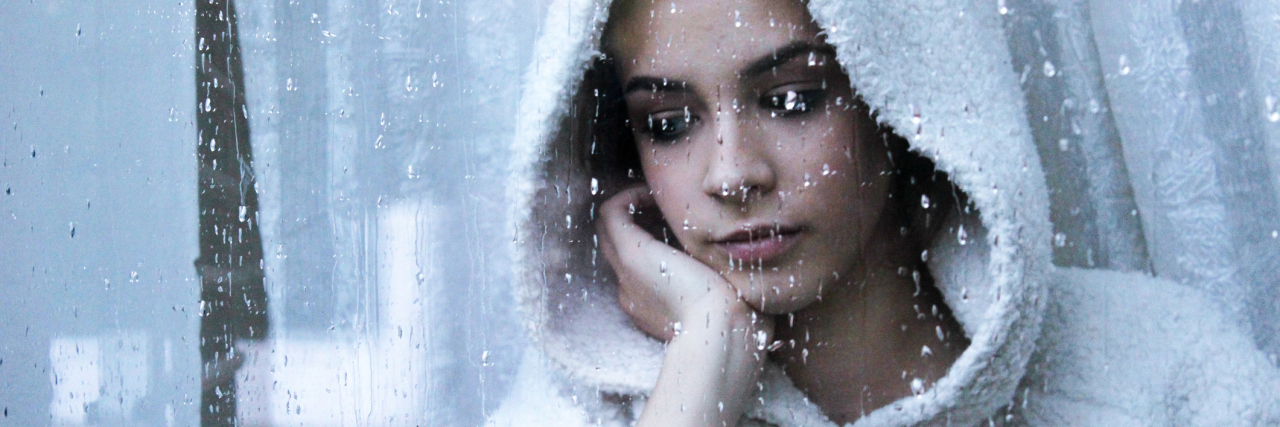Editor’s note: If you struggle with obsessive-compulsive disorder (OCD), the following post could be potentially triggering. You can contact the Crisis Text Line by texting “START” to 741-741. To find help visit International OCD Foundation’s website.
I was having a conversation with my boyfriend recently and somehow, we got on to the topic of reassurance. I tried my best to explain reassurance as a compulsion, but he kept saying he didn’t understand. Finally, he said, “If you know that it’s a compulsion, then why do you do it?”
My heart sank a little because I knew that obsessive-compulsive disorder (OCD) was, once again, misunderstood. I knew that even after all the films, articles and rants I had subjected this poor man to, he still didn’t understand what it was like to have OCD. I also knew in that moment that I didn’t blame him one bit.
Let’s be honest; mainstream media’s efforts to demystify OCD and bring it into the eyes of the public have forced most of our population to even further stigmatize OCD. Most of the portrayals are overexaggerated and loaded with stereotypes. Take, for example, the popular show “Monk.” The show’s main character is a detective with OCD, who is portrayed as quirky and eccentric due to compulsions that have him cleaning, counting and saving the day at the end of every episode. While some of the stereotypes may be true, the overall depiction of OCD on this show is harmful because it encourages the audience to get a laugh out of the character’s behavior by telling us it’s childlike and silly, and it completely leaves out the soul-crushing thought spirals happening in the individual’s mind.
I think that’s the biggest problem with any portrayal of OCD I have seen. It’s easy to show a person washing their hands, checking a door or counting something, but you can’t see the wheel of terror that is spinning in someone’s mind that is causing them to do such a thing. It’s hard for me to even put such raw emotions into words and feel like I am doing them justice.
I watched shows like “Monk” or A&E’s “Obsessed” years before I was diagnosed, and never concluded that I might also have OCD after viewing them. These shows all emphasize the compulsions, but there is a reason that obsessive comes before the compulsive in this disorder. If only they described OCD like waking up in the morning and feeling anxious before you’ve gotten out of bed. Or like seeing horrible scenes play out in your mind that seem straight out of a horror movie, but you don’t want to tell anyone because you wrote and directed them, after all. Or like a worry that sticks in your mind throughout the day that is powerful enough to make you question your job, your friendships, your family and even yourself. Or like constant “what ifs” that cannot be appeased and make you catastrophize the smallest concern. If only, right?
If OCD were portrayed more like the anxiety disorder that it is, and less like a quirky condition concerned with neatness and checking things, I truly believe more people would be getting help today. More people would talk about the anxious spirals in their minds if they knew they weren’t alone. People like my boyfriend would understand that compulsions are done because the individual is willing to do anything to stop the thoughts currently strangling them, and knowing that an action is not rational does not always stop the anxiety or fear behind it. Sometimes, compulsions are not even overt or visible. They can be as simple as counting in your mind, making mental lists, reviewing your actions or thoughts, or reassuring yourself.
Lastly, I think if OCD were portrayed more accurately, people would understand that all anxiety disorders are not alike. They vary in severity and symptoms and are unique to each person. Just because you see someone like the detective on “Monk” lining up his pencils meticulously in a row doesn’t mean everyone with OCD does this. Maybe if they didn’t have to live under the fear they would be judged and poked fun at in the same way the characters on television are, more people would be brave enough to ask for help.
We want to hear your story. Become a Mighty contributor here.
Getty Images photo via vladimir šifliš

